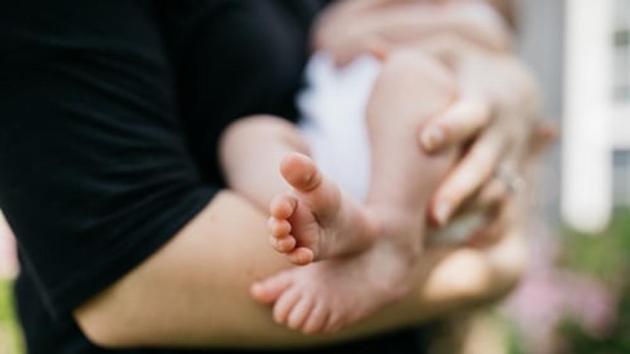Can COVID-19 be transmitted through breast milk?
Coronaviruses (CoV) are a family of viruses that cause illness ranging from the common cold to more severe diseases such as Severe Acute Respiratory Syndrome (SARS-CoV) and Middle East Respiratory Syndrome (MERS-CoV).
Coronaviruses (CoV) are a family of viruses that cause illness ranging from the common cold to more severe diseases such as Severe Acute Respiratory Syndrome (SARS-CoV) and Middle East Respiratory Syndrome (MERS-CoV).

Coronavirus disease (COVID-19) is a new strain that was discovered in 2019 in Wuhan, China and has not been previously identified in humans.
Common signs of infection include fever, cough, running nose, shortness of breath and breathing difficulties. In more severe cases, infection can cause pneumonia, severe acute respiratory syndrome, kidney failure and even death.
Standard recommendations to prevent infection spread include regular hand washing, covering mouth and nose when coughing and sneezing, thoroughly cooking meat and eggs. Avoid close contact with anyone showing symptoms of respiratory illness such as coughing and sneezing.
How does COVID-19 affect pregnant women?
Are pregnant women more susceptible to the disease? There is not much scientific information on this subject as the disease is still very new. Pregnant women experience immunologic and physiologic changes which make them more susceptible to viral respiratory infections.
Based on a limited number of confirmed COVID – 19 cases, pregnant women do not appear to be at an increased risk for severe disease. This is unlike other viral infections such as influenza, SARS-CoV and MERS-CoV where the severity is much more.
Is the risk of adverse pregnancy outcomes increased?
There is not enough information to answer this question. However, with the other Corona virus infections, miscarriage, stillbirth and birth defects have been observed.
Can pregnant women with COVID-19 pass on the infection to their fetus or newborn?
Again, there is paucity of evidence on this. But in a limited series of women who delivered during the outbreak in China, the babies did not test positive for COVID-19.
Can COVID-19 be transmitted through breastmilk?
The main concern is not whether the virus can be transmitted through breastmilk, but whether an infected mother can transmit the virus through respiratory droplets during the period of breastfeeding especially when coughing or sneezing. A mother with confirmed COVID-19 or who is a symptomatic person under investigation should take all possible precautions to avoid spreading the virus to her infant, including washing her hands before touching the infant and wearing a face mask, if possible, while breastfeeding.
If expressing breast milk with a manual or electric breast pump, the mother should wash her hands before touching any pump or bottle parts and follow recommendations for proper pump cleaning after each use. If possible, consider having someone who is well to feed the expressed breast milk to the infant.
In a limited case series, no virus was found in the breast milk. However, it is not known if the virus can be transmitted to the baby through breast milk.
Stay safe stay positive
•Keep away from people - in other words practice “social distancing”
•Avoid events and mass gatherings
•Keep a distance of at least 6 feet with anyone who is sick or has symptoms
•Wash hands frequently with soap and water for at least 20 seconds or use an alcohol-based hand sanitizer that contains 60% alcohol.
•Cover your mouth and nose with your elbow or a tissue when you cough or sneeze. Throw away the used tissue
•Avoid touching your eyes, nose and mouth if your hands aren’t clean.
•Clean and disinfect surfaces you often touch on a daily basis
•Act responsibly – please do not forward baseless messages on social media. Refer to the WHO and CDC guidelines.
CDC doesn’t recommend that healthy people wear a face mask to protect themselves from respiratory illnesses, including COVID-19. Only wear a mask if a health care provider tells you to do so.
The article is authored by Dr Prathima Reddy, MBBS, MRCOG (London), FRCOG (London), FACOG (USA) Director, Senior Obstetrician and Gynaecologist, Fortis La Femme Hospital, Richmond Road Bangalore
Catch your daily dose of Fashion, Health, Festivals, Travel, Relationship, Recipe and all the other Latest Lifestyle News on Hindustan Times Website and APPs.



